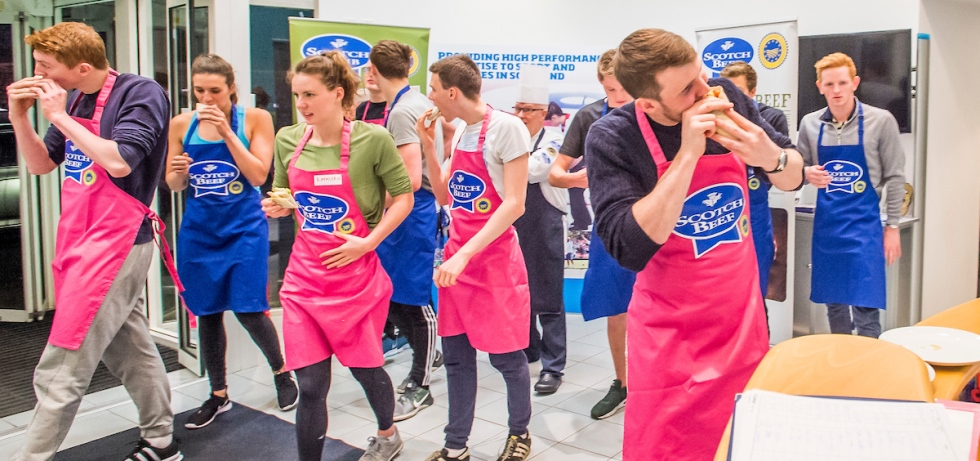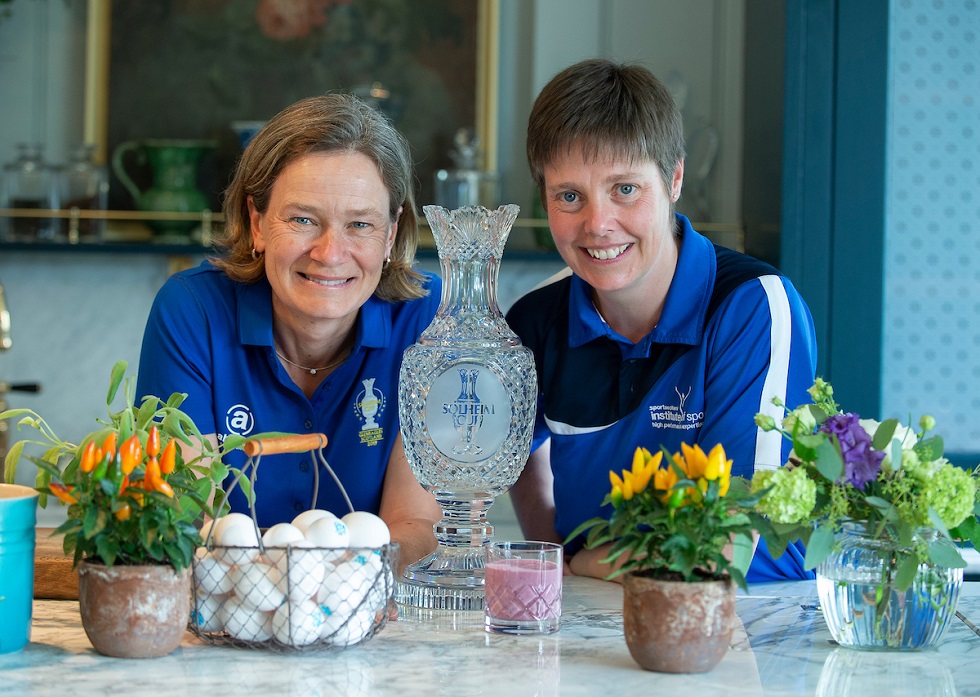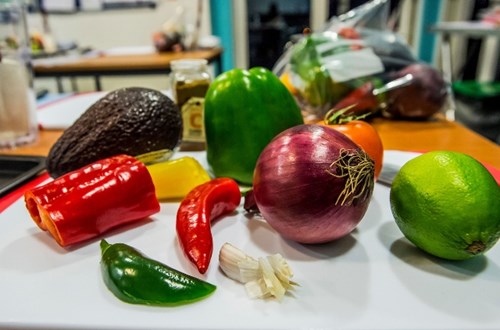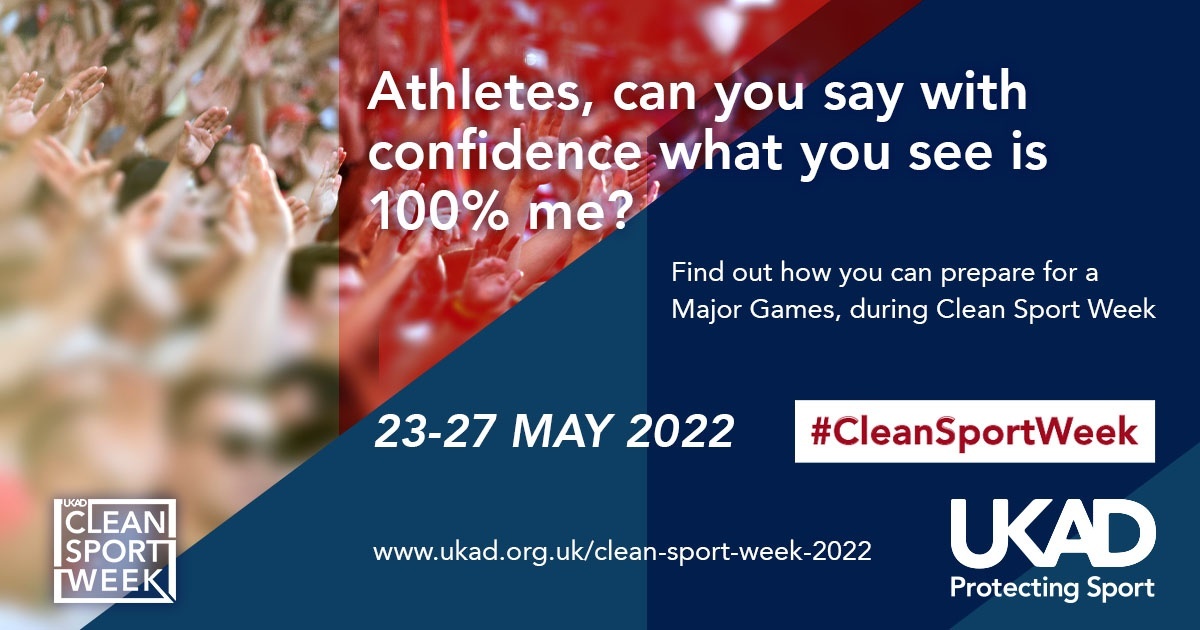Go to any gym these days and you are likely to see many people working out with a protein shake by their side. In gyms and supermarkets there are shelves of protein bars and supplements alongside energy drinks.
Supplement sales are huge, but did you know that 44 per cent of adverse analytical findings (ADRVs) in 2012 in the UK were linked to supplements?
In a YouGov poll of British adults who exercise and take sports supplements conducted for UK Anti-Doping (UKAD) and published as part of #CleanSportWeek, the results were shocking with 87 per cent of respondents admitting they don’t seek any advice from a healthcare professional before taking supplements.
Putting Food First
Sport First met with Irene Riach, sportscotland institute of sport national lead for performance nutrition, to hear how her team puts food first in a bid to address the supplement culture in performance sport.
“Supplement use in sport is widespread as athletes look for a ‘quick fix’ to help them improve. It is a multi-million pound industry with a massive marketing budget, but it is also an unregulated industry," said Irene.
"We have developed a programme called Food First to educate athletes and coaches that there is another way to progress towards performance targets by supporting training with a sound foundation of nutrition by eating and enjoying real food.”
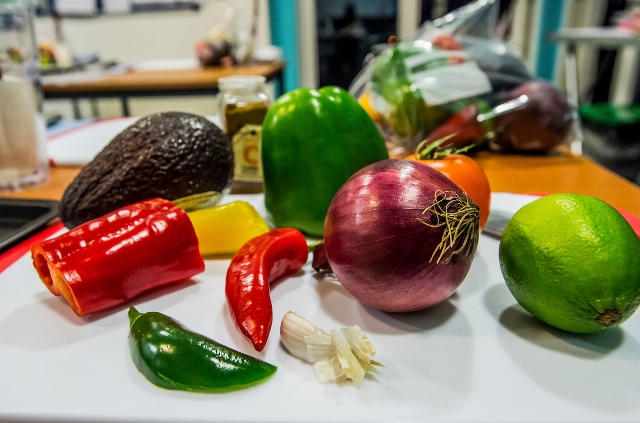
Food First has been developed by the institute in collaboration with Fiona McNeilly, a UKAD trainer, and it now forms an integral part of the anti-doping education programme delivered to athletes.
“Traditional anti-doping education has been based on sharing information from the latest UKAD Strategy or WADA Code, and essentially talking at the athletes," Irene Riach explains.
"We wanted to make it more practical and demonstrate how an athlete can be in complete control of what they are putting in their bodies, tailoring each meal to meet their requirements to support performance gains.
"With Food First we show athletes, coaches and support staff that you can get the majority of your nutrition requirements from food.”
The WADA Code stresses the importance of upskilling athletes for their own protection; the better educated they are, the more likely they are to make informed choices about what they consume. This is the approach taken in the Food First programme.
Going back to basics
Irene and her team have gone right back to basics, working with athletes to determine what they actually know about nutrition and supplements.
“We ask athletes to identify and guess quantities of macro-nutrients like carbohydrate and protein in common foods and supplements, and also explore food labelling," she said.
"It can be quite confusing but a good understanding of food labelling will help athletes to make more informed choices about what makes it into their shopping trolley.
“We also set homework challenges where athletes risk-assess supplements and foods, reporting back on what choices they made and how they made their decisions. This evidencing of choice is part of the 2015 WADA code update, so the nutrition team feel it’s an important skill for athletes as they’re responsible for everything they put in their bodies.
“We’ve tried to make the homework as realistic as possible by creating scenarios athletes are likely to face during their careers" The fact-finding, choices and repercussions allow athletes to experience what can go wrong, and hopefully allow for reflection on the consequences of their decisions.
"Athletes have really engaged, but for the few who forget their homework, we give them the scenario of the athlete that’s taken a supplement because their friend said it was good. They produce an ADRV and because they have not researched or tried to minimise the risk, they are served a four-year ban.
"We ask them to sit outside the group, take any sponsored jackets and shoes from them, explain that they can no longer train or be part of this group, giving them a sense of how a doping ban would impact on their life.

“In addition to Food First we also run workshops to upskill athletes in fundamentals like shopping, menu planning and cooking in conjunction with chefs from Quality Meat Scotland. We can demonstrate to athletes how quick and easy it is to prepare meals and how they can then manipulate menus to meet performance requirements by adjusting things like the amount of protein or calories in a particular dish.
“With that base level of understanding we can then look at what performance question the athlete and coach is trying to answer. Is nutrition a part of that question? Often other areas will have a bigger impact, ie physical preparation or Performance Lifestyle planning, consistency of training – all of which can be supported with appropriate nutrition rather than quick-fix supplements.
"In today’s fast-paced society we need to slow down and be mindful about nutrition. Scotland has a rich larder to celebrate, and enjoyment of food is an empowering experience."
Impact assessment
The impact of the programme has been monitored, with three-month and six-month assessments conducted to look at how behaviours have changed and mapping the athletes’ thought processes. Results have been very encouraging and other support staff are now being challenged to consider their input.
Cycling, swimming, athletics, badminton, Nordic skiing and curling have already benefited and more sports are now asking for the Food First training to be delivered.
Find out more
Read the full results of the YouGov poll on the UKAD website.
Irene Riach sits on the Board of Sport & Exercise Nutrition Register (SENr), which is a nationally recognised quality mark for work in sports and exercise nutrition. She co-authored the SENr Position Statement on Supplements published in 2016, which is used widely as an industry standard reference for performance nutrition practitioners.
Our National Outdoor Training Centre Glenmore Lodge has produced a great guide to cycling nutrition.

